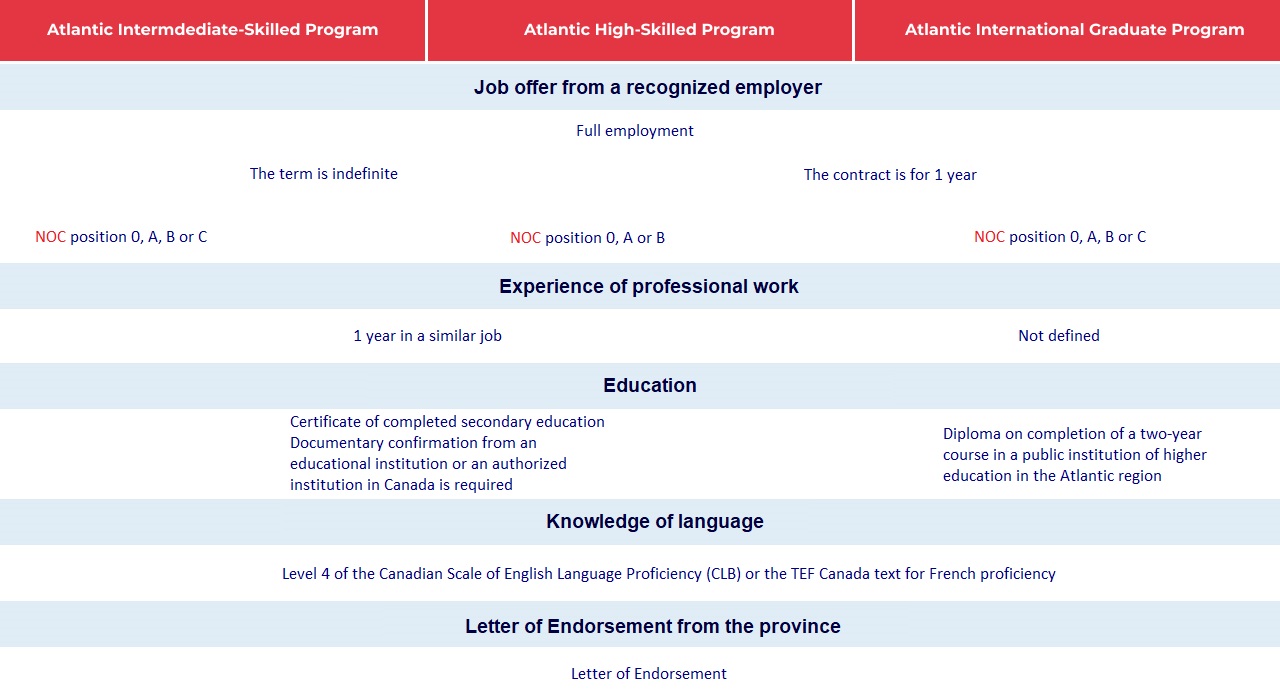Atlantic immigration
On January 27, 2017, the Government of Canada announced details of the Atlantic Experimental Immigration Program.
On July 4, 2016, the main immigration policy goals of Canadian provinces such as: New Brunswick, Nova Scotia, Newfoundland, Prince Edward Island and Labrador (generally known as Atlantic Canada), which make up the Atlantic Growth Strategies, were first announced.
According to the authorities, the region’s aging population and corresponding shrinking workforce means that “meeting much-needed labor market needs and ensuring long-term economic growth and continued success in Atlantic Canada requires the immigration of skilled workers.”
Therefore, the Atlantic immigration program (Atlantic Pilot Project) was designed as an experiment to improve the settlement of newcomers. The program’s goal is to convince economic immigrants that they can settle and be employed through this system.
Targeting the Demands of the Labor Market
The Atlantic Immigration Pilot Program forecasts an opportunity to attract foreign skilled workers, as well as internationally educated graduates from institutions in the region, to permanent residency in any of the four designated provinces on Canada’s Atlantic coast. Experienced immigrants will no longer be required to obtain a Labor Market Impact Assessment (LMIA) from employers to expedite their employment.
The program will also introduce temporary work permits, which will allow qualified foreign workers and their families to move, settle and work in the region while their immigration applications are being processed. In order to qualify for a temporary work permit, you must meet certain requirements.
The Atlantic Immigration Pilot Program began accepting applications in March 2017. In 2017, up to 2,000 applications had been expected to be accepted, including both principal applicants and any accompanying family members.
Atlantic Immigration Pilot Program comprises of the following three categories:
Atlantic Immigration Pilot Program comprises of the following three categories:
- Atlantic High-Skilled Program, which targets individuals with a job offer on a full-time, 1-year contract. According to the National Occupational Classification of Canada (NOC), candidates must be at Level 0, A or B;
- Atlantic Intermediate-Skilled Program, which is aimed at job seekers expecting a full-time job offer of indefinite duration. According to the National Occupational Classification of Canada (NOC), candidates must be at Level 0, A, B or C;
- Atlantic International Graduate Program, which is aimed at foreign graduates with at least two years of higher education at public institutions in the Atlantic region. Such graduates are also required to have a job offer.
Additional eligibility requirements also apply to each of the above programs. Please refer to the table “Three Candidate Selection Categories” for more information.
Clients wishing to be eligible to immigrate to Canada via the Atlantic Immigration Pilot program are required to have the following documents:
- Certificate of completion of IELTS General Training, which must be at least CLB 5 (you can check the CLB score at the link);
- Educational credential assessment (ECA) from Canada;
- Documentation of work experience (this must be a listing of the duties in the position);
- Proof of sufficient funds to live in Canada.

